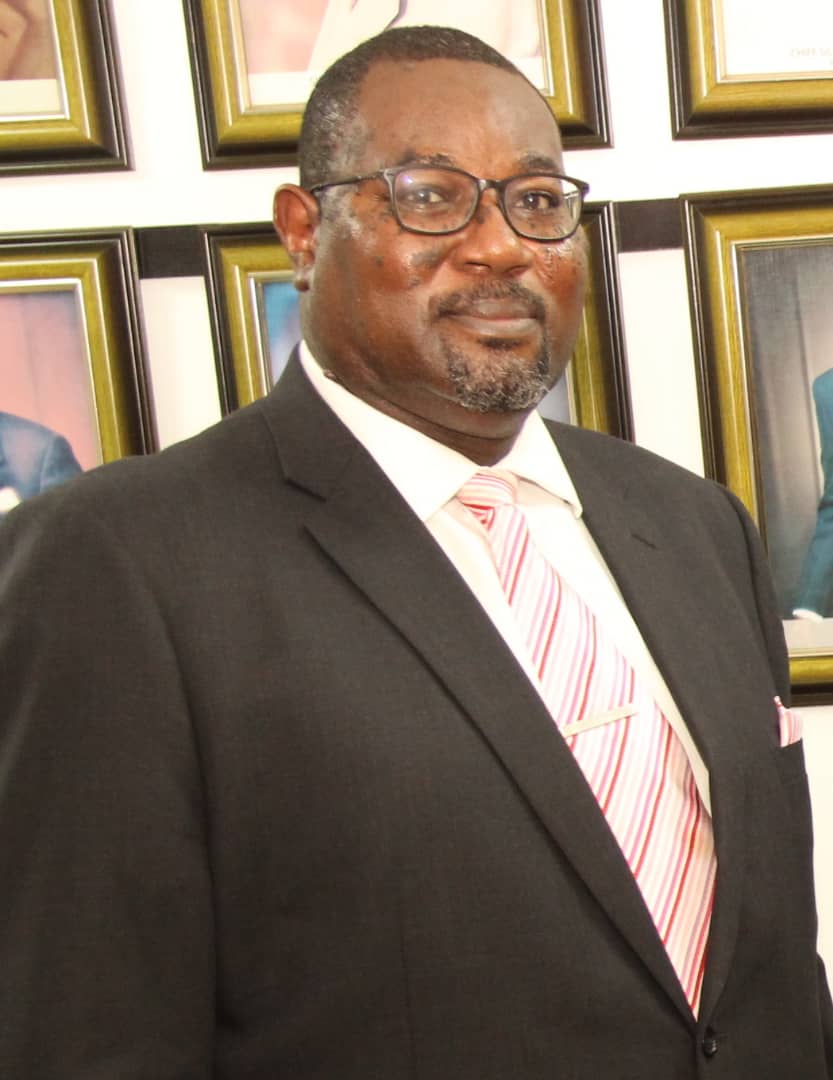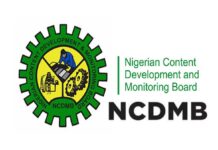The Managing Director of 11 Plc, Adetunji Oyebanji is a very busy man, with many schedules and always on the go. Nonetheless, the Transport Day team of Frank Kintum and Goodness Sunday, recently had a chat with him on industry issues at his Apapa, Lagos office.
It’s been seven years now that 11 Plc took over Mobil Oil Nigeria Plc, how has it been?
Nipco Investment bought over ExxonMobil share of Mobil Oil Nigeria Plc, they bought 60% interest of the company, and part of that process was to rename the company to 11 Plc from what it used to be.
So we remain a distributor of ExxonMobil and Mobil products in Nigeria just that we are no longer a subsidiary. We are now centrally a distributor of their products, so the nature of our relationship changed, so we still trade with the name Mobil as the distributor of their products. But before, they owned us, we were the subsidiary of the company, but now it is an independent company that deals in many products.
What I can say is, it has been a very exciting time. With every change, when the change was coming or being anticipated, there was a lot of worry and concern among staff, distributors, dealers and everybody. A lot of us took courage and said, well this is a change. Let us see how it goes.
I had actually planned to retire around that 2017, but the new owners coming on said no, they decided that I should not leave at that point in time. So to answer your question, very simply, it has been an exciting time.
I think most outstanding is the level of investment that has taken place in the company, since that time up till now, we have gone into several new businesses.
We have gone into LPG in a very big way. But for the rain, you would have seen two giant tanks of 4000 metric tonnes each that were built soon after that change. We have also invested in close to 40 of our stations nationwide right now in LPG.
Also, before that 2017 take over, about four years, or five years before that, ExxonMobil had decided to ask this company to withdraw from selling aviation products, that is aviation fuel and aviation lubricants. So we actually left that business, but when the new owners came in, it was one of their first priorities, was for us to get back into that business, in a very strong and very big way.
We invested in new equipment and all that, and today we are now one of the leading marketers of aviation fuel and aviation lubricants in the country.
Then the Lubricant manufacturing plant has a 450,000 barrel plant capacity. It is a very big plant in Apapa here in Lagos. So, there has been a complete overhaul of everything, all the filling lines, everything has changed, new equipment, new storage.
All these investments, are things that I would dare say, if Exxon Mobil had still been here, we would not have any of the investments at all. So, I would say the company is better off for it. Profitability has also improved accordingly. So last year, I think, we ended up with about N21b, compared to the time when we were doing like N3bn, N4bn.
So, all these investments have paid off. We have invested in upgrading many of our retail outlets across the country.
So it has been good. And then I would say, lastly, the major investment we made as a company is in the hotel, so Lagos Continental Hotel is now one of the subsidiaries of the company. So, again, these are the investments that have been made. Abuja Continental Hotel is owned by NIPCO.
Okay, let me quickly get a clarification. NIPCO and 11 Plc, what is the difference?
NIPCO is the entity that bought that 60% share of ExxonMobil. So NIPCO Investments, not NIPCO Plc. NIPCO Plc is that company, but there is another company that owns 60% of this company and owns 60% of NIPCO Plc, so that is how it is.
Secondly sir, you talked about LPG. LPG for 11 Plc, are you not doing CNG?
It is a group of companies, there is another company called NIPCO Gas. NIPCO Gas was purposely set up to do the gas business, so today, even though we have LPG storage facilities, managing that on our behalf is NIPCO Gas, it is our own facility but all the gas expertise of the group is in NIPCO Gas. So whether there is tank in NIPCO Plc or 11 Plc, NIPCO Gas is the operator.
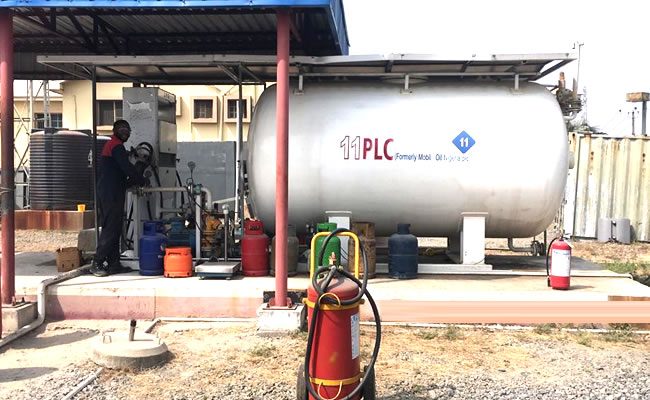
Now, NIPCO Gas has now entered into partnership with NNPC and part of that partnership is to develop CNG stations, but NIPCO Gas does not have stations, NIPCO Plc has, 11 Plc has, so they have situated those CNG stations, so in fact on Tuesday, we were to open the four that we have just built. One at Agidingbi, Challenge in Mushin, Ilasamaja, Sangotedo, we were to open them but because of this strike, we had to postpone it. So it is NIPCO Gas that is the face, but those four I talked about are actually situated on Mobil stations.
So what plans do you have for expansion?
A lot of it is what we just talked about, we have done a lot of gas LPG sites, we have now started on CNG, so we expect to expand the CNG to other locations to increase the number of retail outlets. I told you, for LPG, we have it in about 30 to 40 sites. Our plan is, this year, we will expand it to up to 50.
As I said, we own Lagos Continental hotel, so we intend to expand that further, to make some investments.
We are also going to invest in more tankage facilities. We need to expand our tankage facilities for aviation fuel because the business is doing fine, so we want to expand our investment.
We never stop investing as far as our lubricant is concerned, the new product lines, new equipment, so we will continue to expand.
I know that recently, the airline operators were agitating that they needed the federal government to grant them licence to import aviation fuel. How do you react to that?
Well, my own impression is, let the government do it. It is like me saying that Transport Day magazine is charging too much, let me also start my own magazine. I am sure you will tell me, go ahead. I will find out whether it is easy or not.
So, that is my reaction. Let them, if they think it is easy, let them go and get involved in it. The best way for any market to operate very well is for there to be many players, many suppliers in the market, and for there to be good competition among them, it will always keep the price at minimum level.
When the airlines increase the ticket price, does anybody say I am annoyed, let me go and buy my own aero plane? We have to adjust to it.
So what are the challenges in the gas initiative?
Gas has many facets to it. As you know, Nigeria is regarded as being actually more of a gas country than oil. There is more gas in Nigeria than oil even though people see Nigeria as oil producer. There is more gas, but most of the gas that we have is what we call associated gas, which means I am looking for oil, but in the process of looking for oil, I come across gas, okay.
What we really need is exploration in gas, so that, I am not looking for oil and find gas, but it is gas I am going to look for to start with.
And that is where we have a big problem in Nigeria, there has not been enough investment in gas exploration.
That is why you continue to hear this story, there is not enough gas. There is supply shortage and people will say, how can there be gas shortage if you say that Nigeria is a gas country, but the gas has to come out from the ground, and people have to make that investment.
The economics has not been such that the investment has not been there, because people would rather go and look for oil and then take the additional gas they see.
Hopefully, with some of the new incentives in the PIA (Petroleum Industry Act) that has just been passed, there will now be more investments in gas and once investment in gas improves, then supply will improve.
Because, in terms of challenges we face, one of the biggest challenges has been supply shortage of gas and that is why sometimes we hear the power generating company will say there is short supply of gas, not enough gas.
When we want to, even for LPG, we have to import to supplement and once you have to import, you know the foreign exchange comes in and that has been partly responsible for astronomical rise in the price of gas.
So, for me, the most fundamental thing that we need to do in Nigeria is to improve and increase investment in gas fills so that we can have enough gas supply, not only for the country, but for exports.
Now, coming to CNG specific, let us forget the supply issue now, you know, first and foremost, expertise, this is a new era, so there is shortage of people who really understand and have expertise in that field. That is one.
Secondly, when you talk about conversion, you want to take your car that you brought here now, and then you want to change it to be able to use CNG, it may cost you half a million naira to make the conversion. Yes, it is cheaper when you make the conversion and when you can use CNG but it cost you a lot of money to make that. So of course, that does not make it too attractive to a lot of people. N500,000?, let me be managing myself as I am, where will I find that kind of money?
So, of course, all those things too, the equipment that we use for that conversion, and all these, all of these have high duty. That is part of what is making the conversion kits to cost so much.
Today, for those who want to invest in CNG station, the station may cost about N900 m. Unlike ordinary petrol station, that even a big one maybe N200 m, N300 m. But for CNG because of the nature of the equipment, because it is compressed, because of that high pressure, you need very thick tanks.
You can’t use the same tin tanks for liquid. So because of that, those tanks are extremely expensive. Even the trucks carrying CNG, you see it like cassette, like a cigarette that people are smoking, they are extremely expensive.
So economic wise, is not an attractive business as that yet. Until things pick up.
So I would say supply has been a challenge, you know, the cost of conversion, expertise in the field, has also been one of the challenges, we are surmounting it small by small.
The federal government is very focused and working with various partners.
The other thing I should also mention is that moving CNG is expensive because the trucks moving contain with pressure, what that means is that the further away the gas station, the more expensive. So how will people get on this? What we have are pipelines.
For instance in Benin, NIPCO Gas has seven CNG stations, but they are all linked by pipeline around Benin.
So what will make it easier to adopt is for this investment in pipelines all over the country, because then people can build their stations near the pipeline and just connect instead of this expensive way going by trucks, so that investment in those pipelines is not going to be easy.
So, but hopefully, government, with it partners working together, may be able to solve that problem.
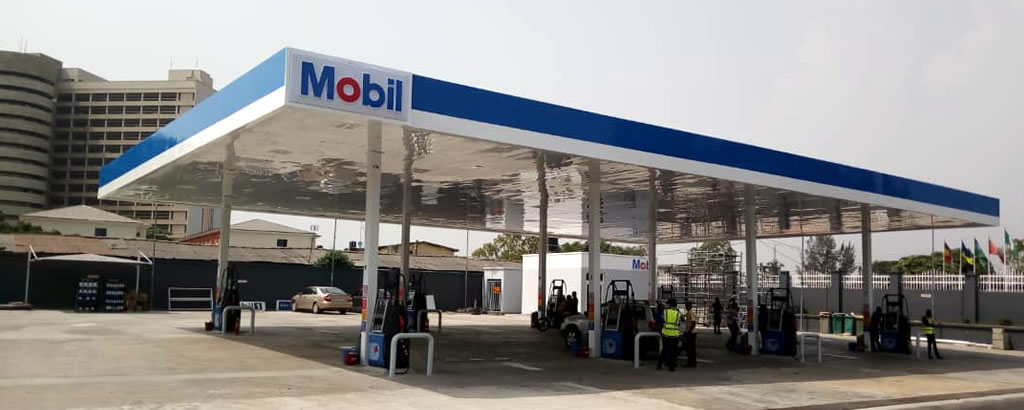
Someone said government ought to concentrate on LPG rather than CNG for autogas. How do you respond to this?
I’ve just explained all this, the cost of transportation because of the size of the tank. So LPG is not like that. LPG doesn’t need that kind of investment. However, LPG one is more volatile. CNG is the safer of the two when you want to use it. Secondly, we are just trying to encourage people to be using LPG for cooking instead of firewood, but when you put pressure on it by making cars to start to using it, it will take the supply away from those who want to use it.
So these are some of the challenges. That’s why, having studied both cases, government came up with the belief, I think, that CNG is the best option and decided to go with CNG.
11 Plc is seen as an Indian investment in Nigeria. What measures do you have in place to promote local talents?
Okay, that’s a good question. Well, I think you can start with me.
You would have thought if an Indian man indeed has taken over the company, his first task would be to find an Indian man to head the company, but here I am. Several of our key managers are Nigerians. Even with all these changes, the number of Indians in this organization are just five or six. I don’t think there has been any drive to Indianise this company. Local talents still have opportunities, if I have been the MD since 2017, it says a lot.
You were quoted recently are saying that 11 Plc has about 250 retail outlets across the country. So how does your company position itself in that regard?
The fact that we have 250 means we are not the biggest. NNPC alone has about 3000 stations. Some other companies may have 500, Ardova, Total. We are not the biggest, but we have always tried to be the most efficient, the most dynamic, and forward looking among the companies. And last year, among the major downstream players, Total, Conoil, MRS, Ardova, 11Plc was the most profitable in terms of the results for 2023.
I know that many of these stations, you may not be the one manning them, but motorists always complain of manipulation of dispensing pumps. How do you check this?
It is a constant battle. We have three or four different models. Some we operate ourselves, it is our staff that operate those ones, Company Owned and Company Operated.
Then we have another category. They are built by individuals. So you build your own station, you come to us and say you want to use Mobil brand. Those ones are called Dealer Owned and Dealer Operated. They tend to be our most challenging because these are independent businessmen, sometimes they can be funny.
So we have those ones we call DOCO, Dealer Owned, Company Operated. So it’s like you build the station yourself, but instead of you operating, we operate. We have a limited number of these.
We have zero tolerance for sharp practices, whenever we discover it, we deal with it in a very harsh manner. We cannot be everywhere at the same time, so we depend very much on feedback on members of the public where such sharp practices are being imposed.
Also, our representatives, as they go round visiting stations, they go with measuring cans. So one of their assignments, whenever they’re doing this, is to check the pumps to verify them independently, and then thirdly, MEMAN, as an industry group, also commissions periodically, consultants to go round the stations, to check the pumps, to verify their measurements.
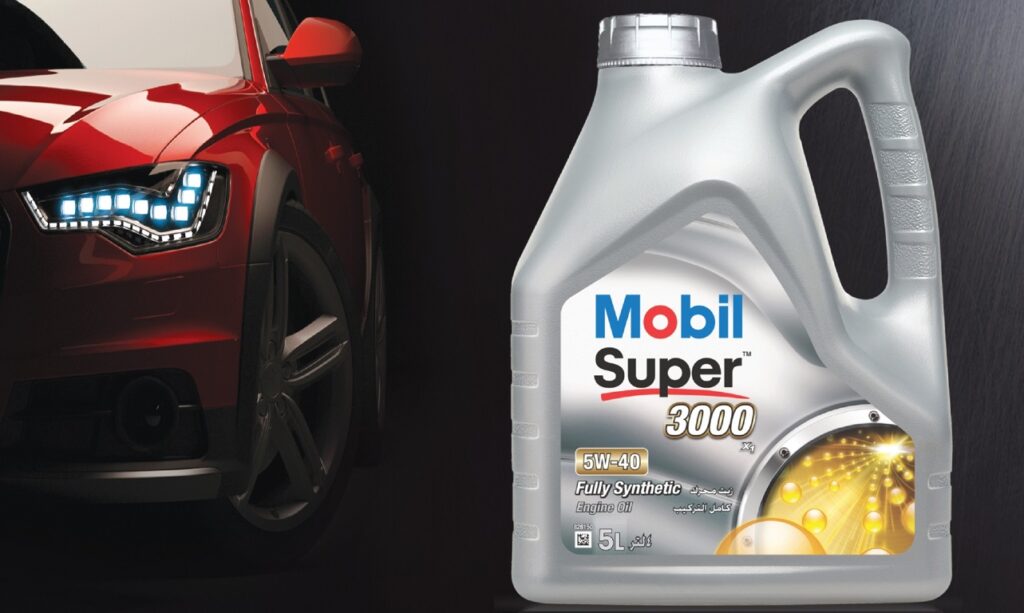
Which of the lubes do you blend in Nigeria and which do you import?
I would say about 80% of the lubricants that we sell, we blend locally. In terms of passenger cars engine oil, only Mobil 1 is imported. Mobil is big all over the world, operating in about 70 countries.
It’s only in three locations that Mobil 1 is blended. Also, what I will describe as industrial synthetic lubes for highly specialized gas engines, those ones too are imported. But as I said, 80 to 90 % of the lubes, we blend locally.-Watch Out for Part 2 (Concluding Part of the Interview)

